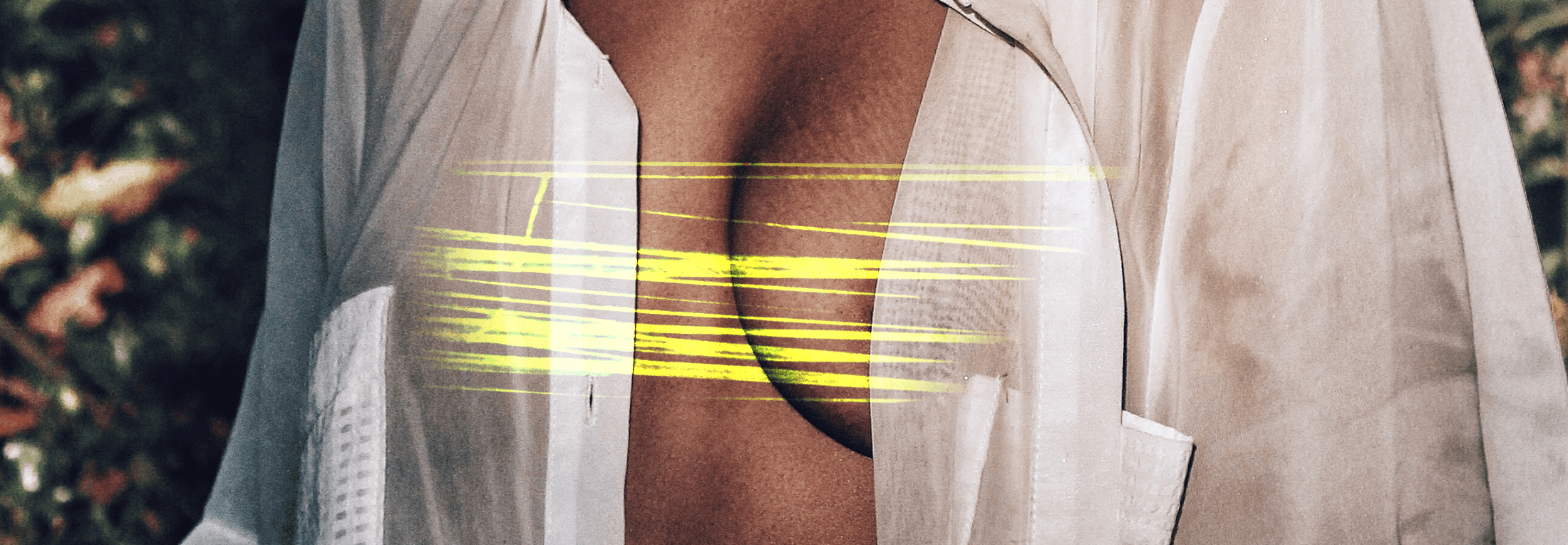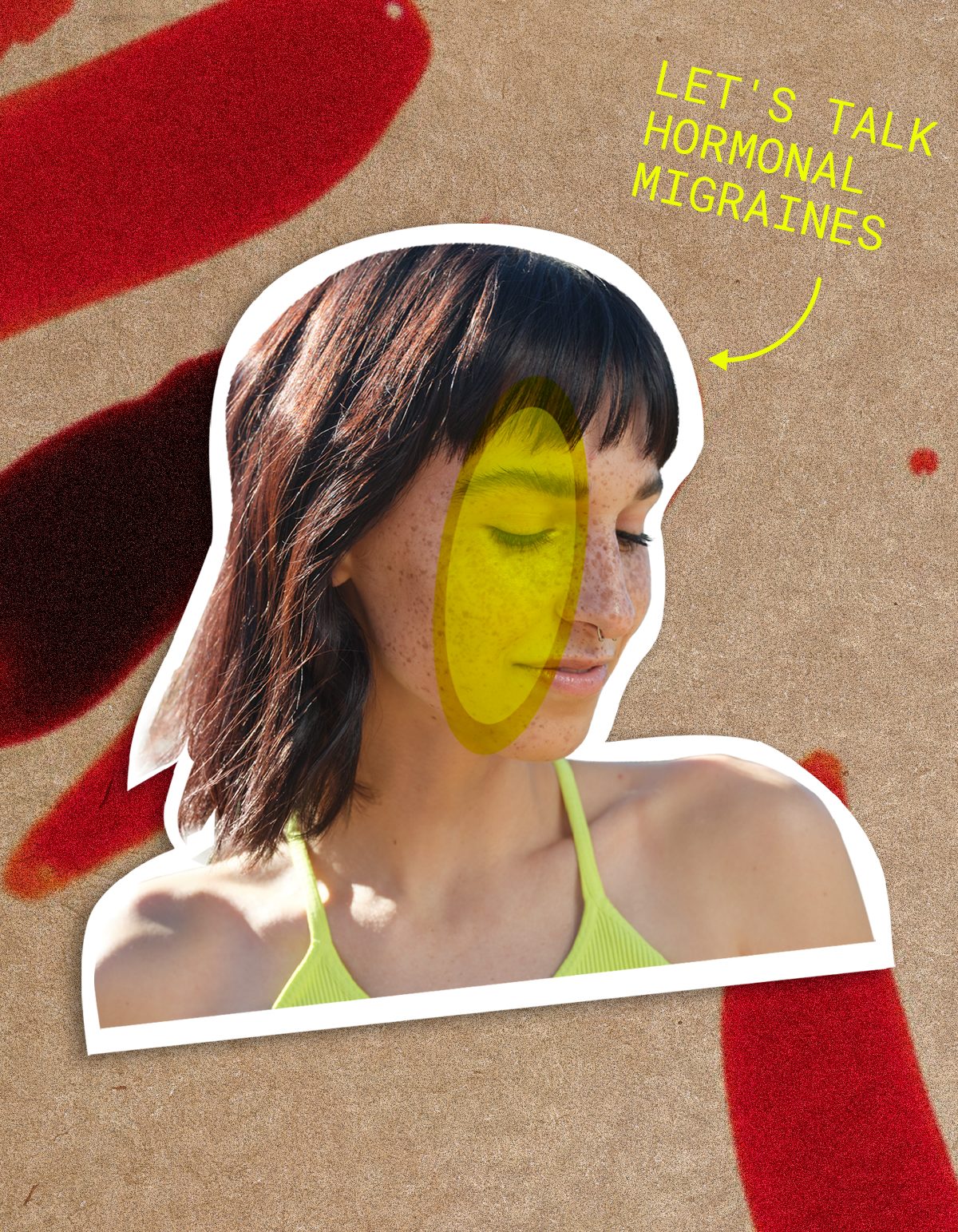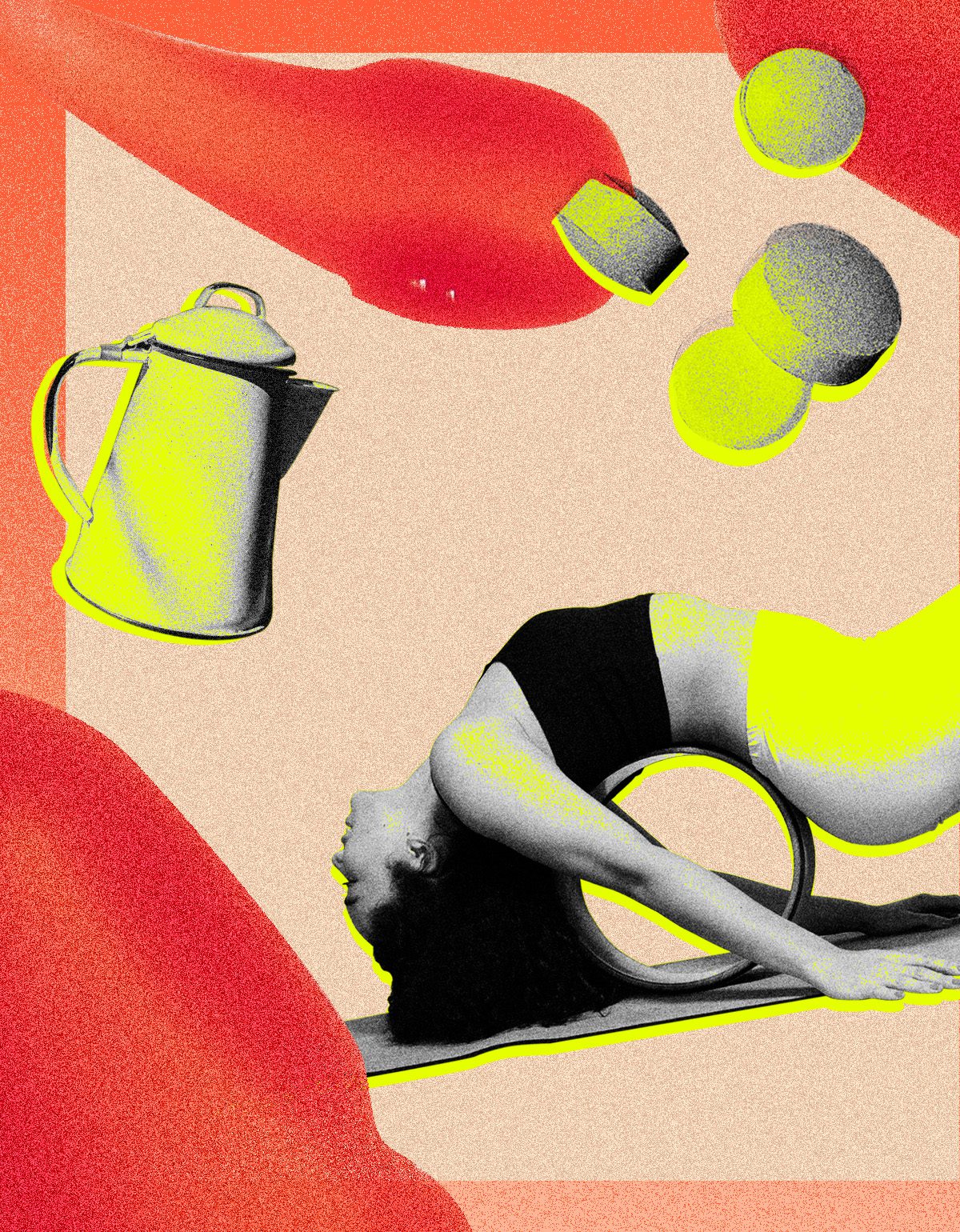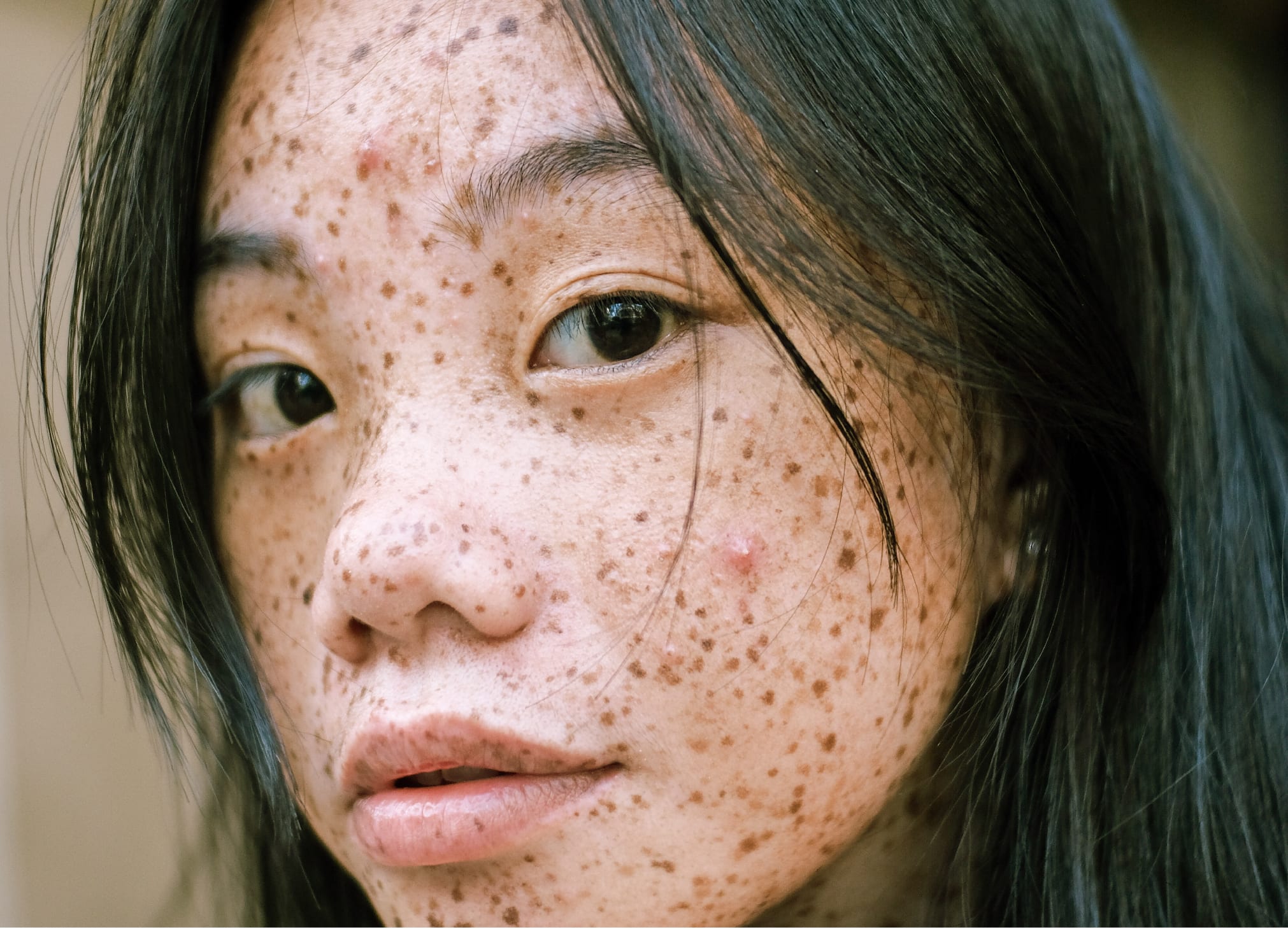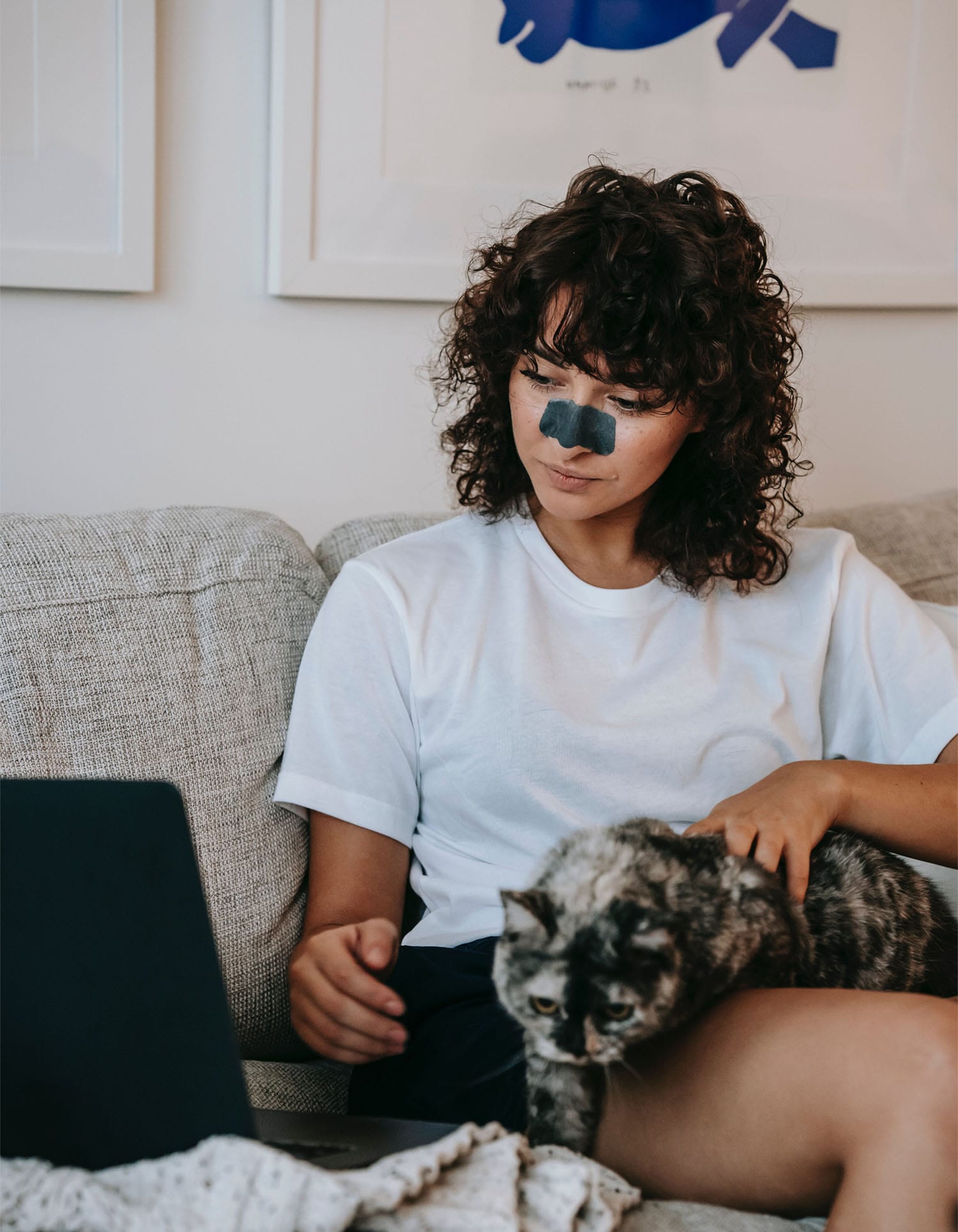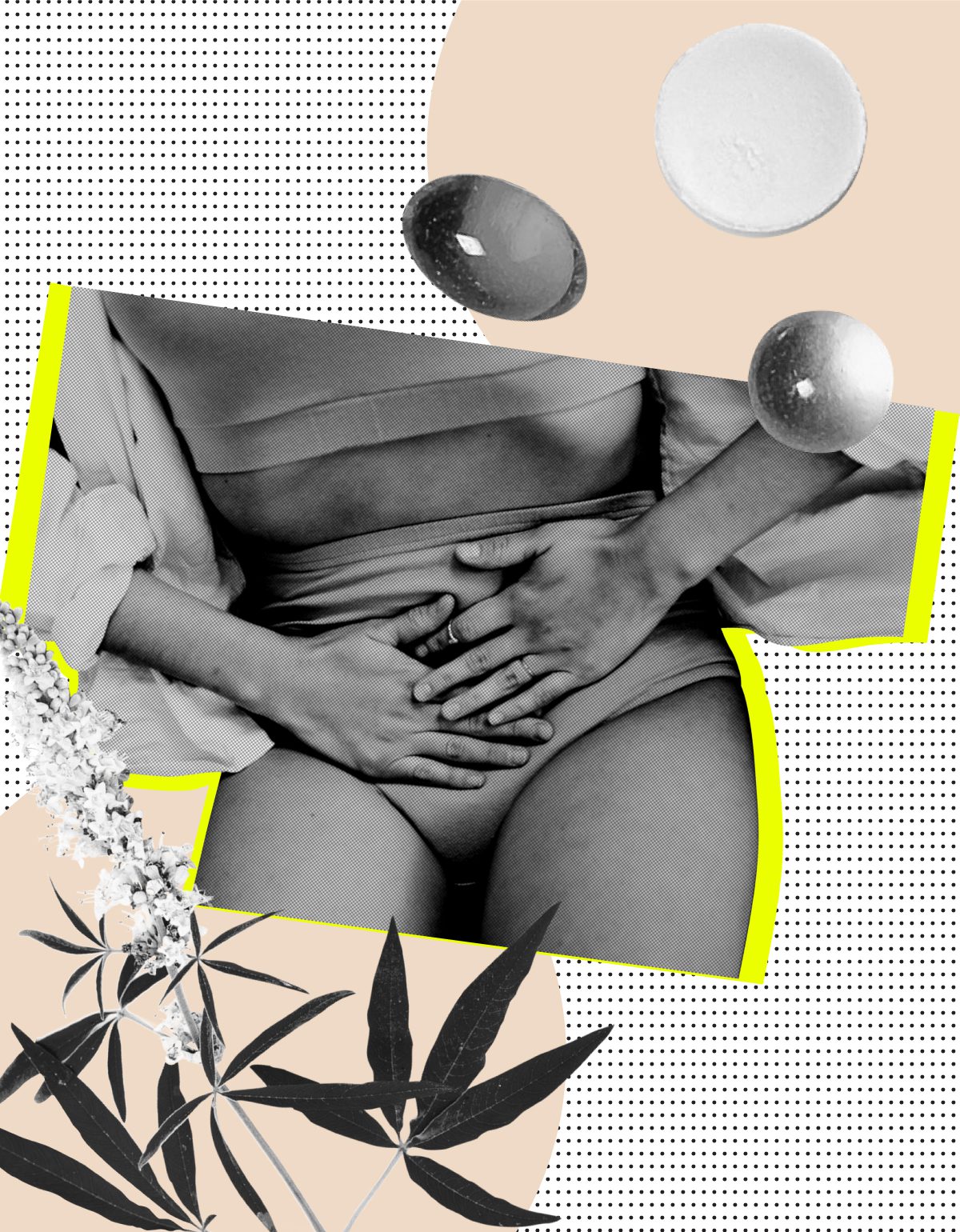Itchy nipples before your period: What it means
If you’ve ever experienced itchy nipples before your period, you’re not alone. Itchy nipples or breasts are uncomfortable, to say the least. And if you’ve ever had the itching strike while out in public, you know how awkward it can be to try to sneak a scratch without anyone noticing. Especially when winter layers are involved (we’re talking to you, Northeast and Midwest).
There are a variety of causes for itchy nipples—some are totally harmless; others might warrant a trip to your doctor’s. When that mysterious boob itch shows up just before your period, it’s most often the result of hormonal fluctuations. However: If the itching is severe, it’s a good idea to familiarize yourself with other possible causes and, as with any sudden symptom, bring it up to a healthcare provider.
Read on to learn more about itchy nipples, itchy boobs, and what you can do about it.
Breast or nipple itching during PMS
Premenstrual syndrome (PMS) is a cluster of symptoms that most of us know well. It’s characterized by the bloating, fatigue, mood swings, and/or hormonal breakouts that show up in the week or so before your period starts. It’s estimated that about 3 out of 4 people who menstruate have experienced PMS symptoms.1
Our menstrual cycles are governed by hormones. In the days leading up to your period (menstrual cycle day one = the first day of your period), you’re reaching the end of the luteal phase. Estrogen and progesterone levels are at their lowest at this time—this is part of what triggers the lining of the uterus, or endometrium, to break down and shed, causing menstrual bleeding.2
One of the effects of lower estrogen levels is breast tissue swelling. Your breasts may even become more tender or slightly painful. Tight sports bras + PMS = not fun.
What does swelling have to do with that itchy, irritated feeling, though?
When breasts swell, the increased pressure stretches out your skin and pulls it taught. In addition, low estrogen levels can cause the skin on the breasts and nipples to become dry and thin, while also increasing sensitivity. All of these factors set the stage for itching.3
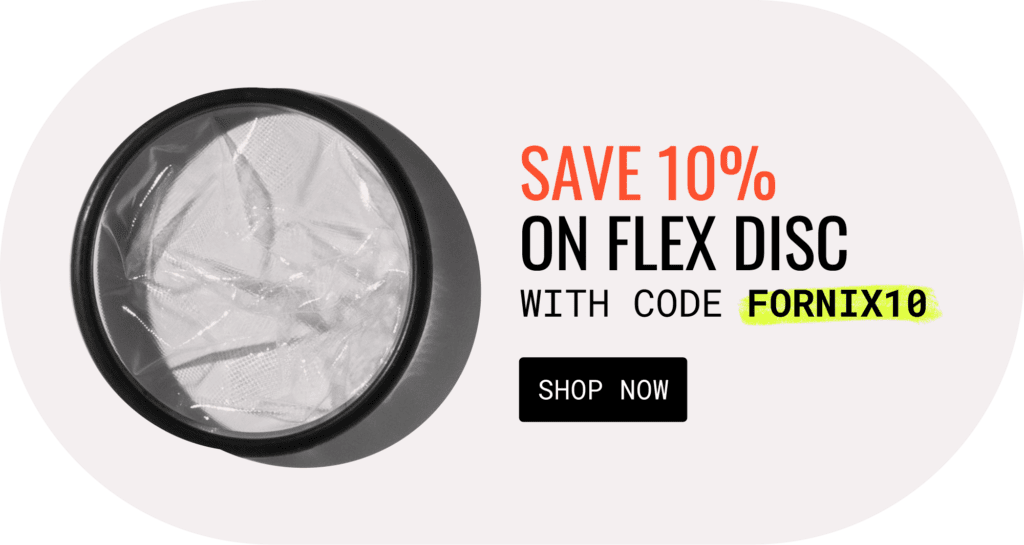

Itchy nipples and PMDD
If you’re someone who experiences a more severe form of PMS known as premenstrual dysphoric disorder (PMDD), there may be other factors contributing to itchy nipples before your period.
While the exact cause of PMDD is unknown, it’s thought that the body has an abnormal reaction to the hormonal changes that happen before menstruation, causing serotonin deficiency.4
Serotonin is a naturally-occuring substance found in the brain that’s involved in many different bodily processes, both physical and emotional. Oddly, one of the symptoms of serotonin deficiency is skin inflammation with itching, acne, or the aggravation of other skin conditions, such as cold sores. If you have a preexisting skin problem or naturally sensitive skin, PMDD-related serotonin deficiency may be contributing to itchy nipples before your period.5
PMS or PMDD-related nipple itching is unlikely to lead to complications. However, it’s still a good idea to talk to your doctor or Ob/Gyn if the itching is persistent, gets worse, or is disruptive to your life.
8 reasons your boobs (or nipples) are suddenly itchy
If you’re noticing itching that continues even after your period is over or that doesn’t let up, there might be another, different factor contributing to the issue. Keep in mind that most causes of nipple itching are benign. However, in rare cases, itching can be an early sign of a rare form of breast cancer (more on that below).
Now that we’ve explained why nipple itching can happen during PMS or with PMDD, let’s talk about some other reasons why your breasts or nipples might be itchy:
1. Hormonal fluctuations
We discussed the link between hormonal fluctuations and nipple itching earlier, but it’s important to note that hormonal fluctuations can be caused by other factors besides PMS or your menstrual cycle. Stress, hormonal contraceptives, sudden changes in your diet or exercise routine, certain medications, and menopause or perimenopause are just a few examples.
It’s not uncommon for people who are approaching menopause to experience breast or nipple itching as a result of the decrease in estrogen levels.3
One of the effects of lower estrogen levels is breast tissue swelling. When breasts swell, the increased pressure stretches out your skin and pulls it taught. In addition, low estrogen levels can cause the skin on the breasts and nipples to become dry and thin, while also increasing sensitivity. All of these factors set the stage for itching.
2. Dry skin or a skin condition
It might seem overly obvious, but dry skin is a super common cause of skin itching—and it can affect any part of your body, including your boobs or nipples.6 Skin disorders, like atopic dermatitis, eczema, or psoriasis, can also impact these areas. Usually, these conditions manifest with a visible rash.
3. Sunburn or heat rash
Just as with any other part of your body, sunburn on your breasts or nipples can cause skin peeling or flaking…along with plenty of itching! We hope it goes without saying, but if you’re going to be out in the sun in a bathing suit, don’t forget to apply sunscreen to your boobs. The skin on and around your breasts is sensitive and more prone to sunburn.
If it’s too late for prevention (we feel you…falling asleep in the sun is all too easy), aloe vera gel can help. Look for an all-natural, 100% aloe formula for the fastest healing and try your best not to scratch or “expedite” the peeling by picking at the area.
4. A too-tight sports bra (or a skin reaction to clothing)
A sports bra that’s too tight is a common culprit behind breast and nipple itching/irritation. When you wear a sports bra that’s too tight, the combination of friction, pressure, and trapped moisture creates the perfect environment for contact dermatitis.
Beyond that, sweat trapped by a too-tight sports bra may affect the nipples, increasing your risk for yeast or fungal infections. Wearing a bra that’s snug, but not too tight, with an air-wicking fabric can help relieve friction and skin irritation from sweat.
What if you’re dealing with itching under your breasts? Itching plus a rash underneath the breast is called intertrigo, and it can occur due to moisture in between skin folds when areas of skin rub up against each other.7 To prevent it, find a supportive bra that fits you correctly and that lifts your breast tissue to minimize skin-on-skin contact.
5. Pregnancy & Breastfeeding
Similar to what happens during PMS, the hormonal changes that happen during pregnancy can cause skin changes such as breast tenderness and itching. That’s why some sources consider nipple or breast itching to be one of the early signs of pregnancy.
However, other skin conditions can come up during pregnancy, too. Pruritic urticarial papules and plaques of pregnancy, also called a PUPP rash, cause small, red bumps and patches of itchy hives to form on the abdomen. This rash may spread to the thigh or buttocks.8
Sometimes, a liver condition in pregnancy, called cholestasis, can cause itching on the palms of the hands and soles of the feet. Both of these conditions are temporary and usually resolve after giving birth. Your doctor or midwifeA nurse midwife is a registered nurse who goes on to receive a master’s degree in nursing and specializes in midwifery. Midwives work with pregnant people before, during, and after childbirth, and may assist with or perform the delivery of a baby either at a birthing person's home, a birthing center, or at a hospital. may prescribe an anti-itch cream or steroid ointment to help relieve itching from these conditions.
Dealing with itchy nipples while breastfeeding? Dermatitis or eczema often flares up on nipples when breastfeeding thanks to a combination of irritation from the baby’s mouth and/or trapped moisture from nursing bras or tight clothing. 9 For more tips on dealing with sore nipples or itching and swelling when breastfeeding, talk to your Ob/Gyn or reach out to a lactation consultant.
6. Yeast or fungal infections
Yeast and fungal infections of the nipples most commonly occur in people who are breastfeeding. Sometimes, a yeast infection, called thrush, can start in the baby’s mouth and then be transmitted to mom’s nipple through breastfeeding. Thrush may be linked to a history of vaginal yeast infections, recent antibiotic use, or nipple damage.10
The most common symptoms of thrush are burning and itching on the nipple that can be mild to severe. Your nipple may look bright red with dry or flaking skin. Thrush is most commonly treated with antifungal oral medication or cream. If your baby also has thrush, they will need to be treated with oral gel or drops, as well.
7. Recent surgery
Itching can sometimes develop after breast surgery, including augmentation, reductions, or mastectomy.11 Itching is usually a sign that the surgical wound is healing and nerve-ending sensations are starting to return in the treated area.
If your surgery involved making an incision around the nipple, you may experience itching in this area as the wound starts to heal. If possible, try not to scratch too much around the surgical wound. If the skin around the surgical site starts to look red or inflamed, your healthcare provider may prescribe a cortisone cream to help keep swelling and itching down.
8. Certain medications or radiation therapy
Some treatments, such as radiation therapy for cancer, can cause the skin to become dry, irritated, and itchy. Radiation therapy, in particular, can cause dry, itchy, or burning skin, similar to that of a sunburn.12
Some oral medications, such as those used to treat breast cancer, have side effects including itchy skin eruptions that may resemble eczema.13 When this happens, your healthcare provider might prescribe a topical steroid cream (like hydrocortisone) to help you manage the symptoms.
Other medications that are commonly associated with pruritus (the medical term for itching) as a side effect include:14
- Cardiovascular drugs such as calcium channel blockers, beta blockers, and hydrochlorothiazide
- Antibiotics including penicillin, cephalosporins, macrolides, quinolones, tetracyclines, and others
- Opioid analgesics (painkillers)
- Psychiatric or neurologic drugs including tricyclic antidepressants (TCAs), selective serotonin reuptake inhibitors (SSRIs), and antiepileptics
Could itchiness be a sign of breast cancer?
In rare cases, itching on the breasts or nipples can be a sign of breast cancer. The important thing to note is that itching in breast cancer cases is almost never the only sign or symptom: It’s generally accompanied by other skin changes, discoloration, bleeding, or discharge from the nipples.
There are two types of breast cancer associated with itching, both of them rare:
Inflammatory breast cancer (IBC)
Itching is most common in inflammatory breast cancer (IBC), a type of aggressive breast cancer that causes cancer cells to infiltrate the skin and lymph vessels of the breast. IBC accounts for only 1% to 5% of all breast cancers—which means it’s very rare.15
With inflammatory breast cancer, there is often no tumor or lump that can be felt. The symptoms may resemble those of eczema with flaking and dry skin—but the itchiness tends to be more intense and persistent.
According to the American Cancer Society, other symptoms of IBC may include:16
- Swelling (edema) of the skin of the breast
- Redness involving more than one-third of the breast
- Pitting or thickening of the skin of the breast so that it may look and feel like an orange peel
- A retracted or inverted nipple
- One breast looking larger than the other because of swelling
- One breast feeling warmer and heavier than the other
- A breast that may be tender, painful or itchy
- Swelling of the lymph nodes under the arms or near the collarbone
Paget’s disease
Paget’s disease is another rare form of breast cancer that occurs in about 1% to 4% of all breast cancer cases. 17 Paget’s disease often first appears as a red, scaly rash over the nipple and areola, similar to that of eczema or psoriasis. It can be itchy or cause a burning sensation. Sometimes, affected individuals will also experience bleeding or discharge from the nipple, or their nipple might become inverted.
Paget’s disease is typically diagnosed by taking a biopsy of the skin around the nipple. If left untreated or scratched too much, the flaky lesions on the nipple can bleed and scab over. Doing a self-breast exam every month and noting any changes to the skin on your breasts, nipples, and areola will keep you alert to any sudden symptoms that are outside your norm.
Are there specific fabrics or clothing styles that can trigger nipple itching?
Certain fabrics like synthetic materials or tight clothing can lead to nipple itching. Fabrics that don’t allow proper airflow or cause friction against the nipple area can irritate the skin, leading to discomfort and itching. Opt for breathable, natural fabrics to prevent this issue.
How to treat itchy nipples
The best way to treat itchy breasts or nipples will depend on what’s causing the itch. If your itchy nipple is PMS-related, try applying cocoa butter, coconut oil, or a moisturizer containing Vitamin E to soothe irritated, stretched skin.Cutting back on sodium (AKA salt) in your diet may also help reduce swelling and bloating throughout your body.
For sunburnt boobs, apply aloe vera. For breastfeeding-related nipple itching or soreness, make sure to keep your nipples clean and dry and apply a lanolin-based ointment daily.
If eczema or an allergic reaction (like contact dermatitis) is behind the itching, your doctor may recommend applying hydrocortisone cream or may prescribe a stronger prescription ointment. Itching due to friction (such as rubbing against a sports bra) can be soothed by applying petroleum jelly. If your nipples tend to get irritated when you work out, apply the petroleum jelly before you hit the gym.
Most cases of nipple or breast itching aren’t serious and should resolve on their own after a few days. If you’re ever unsure about itching or you notice other symptoms such as bleeding or discharge from the nipples, contact your healthcare provider.
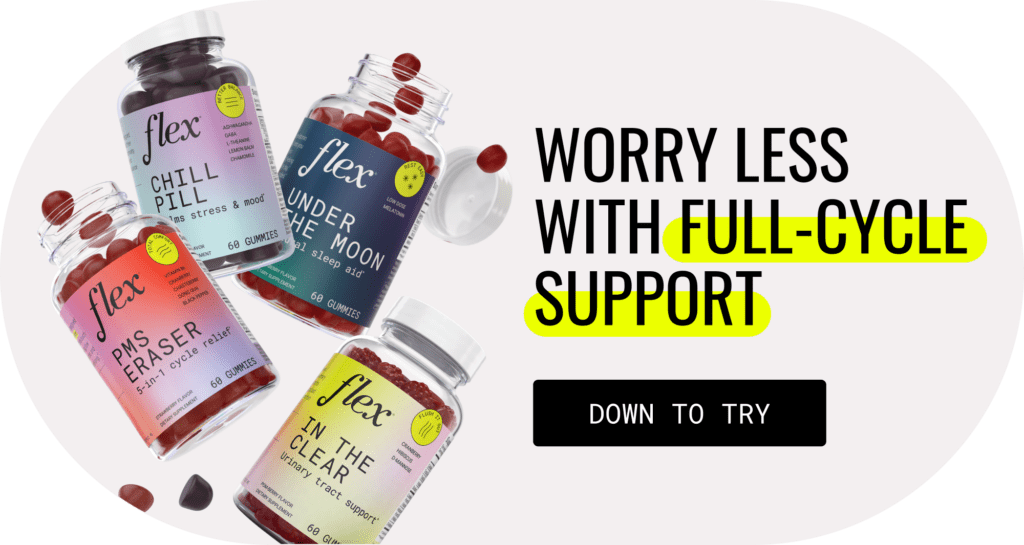

This article is informational only and is not offered as medical advice, nor does it substitute for a consultation with your physician. If you have any gynecological/medical concerns or conditions, please consult your physician.
© 2025 The Flex Company. All Rights Reserved.
- Mayo Clinic Staff. (2020, February 7). Premenstrual syndrome (PMS). Mayo Clinic. https://www.mayoclinic.org/diseases-conditions/premenstrual-syndrome/symptoms-causes/syc-20376780[↩]
- Knudston, J. & McLaughlin, J.E. (2020, January). Menstrual Cycle. Merck Manual Consumer Version. https://www.merckmanuals.com/home/women-s-health-issues/biology-of-the-female-reproductive-system/menstrual-cycle[↩]
- Black Doctor Organization. (n.d.) Does menopause cause itchy breasts? https://blackdoctor.org/does-menopause-cause-itchy-breasts/[↩][↩]
- Johns Hopkins Medicine. (n.d.). Premenstrual dysphoric disorder (PMDD). Johns Hopkins Medicine. https://www.hopkinsmedicine.org/health/conditions-and-diseases/premenstrual-dysphoric-disorder-pmdd[↩]
- University of Rochester Medical Center. (n.d.). Premenstrual dysphoric disorder (PMDD). https://www.urmc.rochester.edu/encyclopedia/content.aspx?contenttypeid=85&contentid=p00580[↩]
- Jean Hailes Organization. (2020, March 5). Common Breast Conditions. https://www.jeanhailes.org.au/health-a-z/breast-health/common-breast-conditions[↩]
- Breast Cancer Now. (2019, March). Intertrigo (rash under the breast). https://breastcancernow.org/information-support/have-i-got-breast-cancer/breast-pain-other-benign-conditions/intertrigo-rash-under-breast[↩]
- Waterbury Hospital. (n.d.). Skin conditions during pregnancy. https://waterburyhospital.org/awhs/skin-conditions-during-pregnancy/[↩]
- Cleveland Clinic. (2018, December 19). Breast rash. https://my.clevelandclinic.org/health/symptoms/17885-breast-rash[↩]
- The Royal Women’s Hospital. (n.d.). Breast & nipple thrush. https://www.thewomens.org.au/health-information/breastfeeding/breastfeeding-problems/breast-and-nipple-thrush[↩]
- Cleveland Clinic. (2021, January 18). Why do my breasts itch inside? Health Essentials. https://health.clevelandclinic.org/why-do-my-breasts-itch-inside/[↩]
- Pruthi, S. (2021, March 20). Breast cancer radiation: Can it cause dry skin? Mayo Clinic. https://www.mayoclinic.org/diseases-conditions/breast-cancer/expert-answers/breast-cancer-radiation/faq-20057981[↩]
- Tripathy, A., Kumari, M.K., Babu, M.A.V., Pai, S.B., & Kumar, M.D. (2014, June 20). Anything rare is possible: Letrozole induced eczematous skin eruption. Journal of Clinical and Diagnostic Research. 8(6). YD03-YD04. doi: 10.7860/JCDR/2014/9028.4498 [↩]
- Huang, A. H., Kaffenberger, B. H., Reich, A., Szepietowski, J. C., Ständer, S., & Kwatra, S. G. (2019). Pruritus associated with commonly prescribed medications in a tertiary care center. Medicines, 6(3), 84. https://doi.org/10.3390/medicines6030084[↩]
- National Breast Cancer Foundation. (2020, April 15). Inflammatory breast cancer (IBC). https://www.nationalbreastcancer.org/inflammatory-breast-cancer[↩]
- American Cancer Society. (2021, November 19). Inflammatory breast cancer. https://www.cancer.org/cancer/breast-cancer/about/types-of-breast-cancer/inflammatory-breast-cancer.html[↩]
- Cancer Research UK. (2020, July 23). Paget’s disease of the breast. https://www.cancerresearchuk.org/about-cancer/breast-cancer/stages-types-grades/types/pagets-disease-breast[↩]
